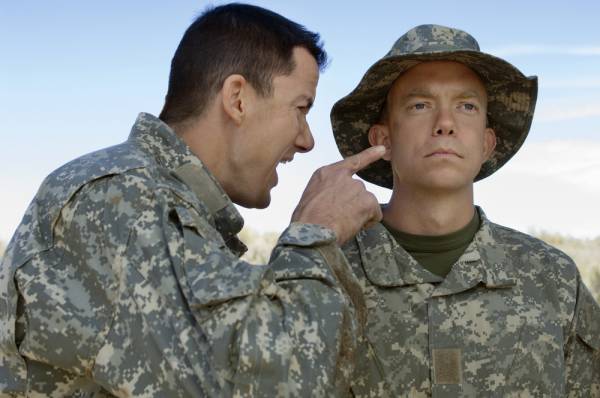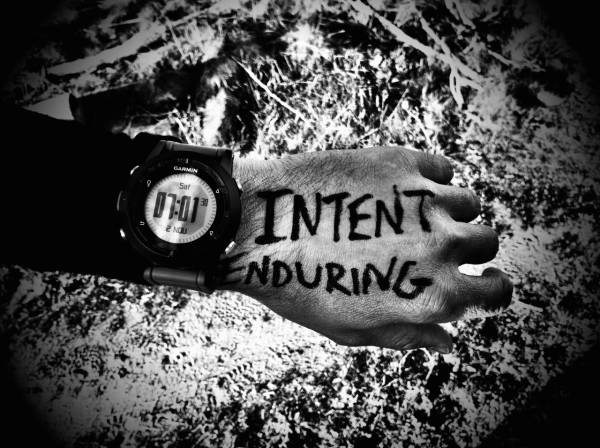I believe that training should have a purpose. It should be a means of building your body and mind kaizen style, with the ultimate goal of being game day ready. Being game day ready means being ready to perform at your best when it counts most – whether in a CrossFit WOD, a tough endurance race, or, for some of us, in real life battle.
One of the biggest failings for most competitors is not getting their mind right on game day. While physically you can be dialed in, not having the mind right too often leads to sub-par performances and disappointment. To put it bluntly as the Gym Jones guys say, “The mind is primary.”
The challenge I often encounter when training myself and my athletes is finding effective practical strategies to get the mind right. Unfortunately, sport and performance psychology can be a rather complex field full of methods that don’t translate well into practice and the reality is if it doesn’t help you perform, you’re wasting your time.
In this first part of a three-part series on how to get your mind right on game day, we’re going to talk about arguably the most practical tool in your mind training arsenal: motivational themes.
The Limited Lifespan of Hardcore Style Motivation
Over the last ten years, I have seen a real transition in the general motivation mindset of the fitness industry. More than ever, we are embracing a hardcore, tough-love style motivation mindset in our training. Likely fueled by the explosion of intense exercise as a training methodology (read: CrossFit), you need only to look at the infinite fitspo motivators all over the internet with their harden up, go hard or go home, and quit when you’re dead style mantras to confirm this change.
Let me just say at the outset, there is nothing inherently wrong with using this style of motivation. Hell, I spent five years in the Army as a physical trainer and we used to dish out this style of motivation daily. However, I have found hardcore/tough-love style motivation has a limited lifespan even for the most dedicated competitors because it is far too generic and rigid to be individualized to the unique needs of every competitor.
For example, what do you do when this style of motivation doesn’t work or stops working for you? If you subscribe to the hardcore/tough-love mindset, then the answer is likely to be to just toughen up and go even harder. Trying to fix your motivation to go hard by attempting to go even harder is a long-term recipe for injury or burnout. I call it motivational insanity, i.e. doing the same thing over and over again and expecting a different result.
The only true way to solve motivational problems is to understand the practical how behind effective motivation. Motivational words, positive encouragement, and tough-love phrases are actually not motivational in themselves. In fact, the words alone are essentially meaningless. The key for words and phrases to be motivational derives from the meaning or resonance they have for each individual.
In other words, things can only become motivational if they actually mean something to you. In fact, they take on an even greater sense of meaning if they were inspired from within your own mind.

Create Your Own Motivational Theme
So, now you know the how behind motivation. How then do you actually put this into practice? Create a motivational theme. They are the most powerful practical means I have found to help get your mind right on game day.
A motivational theme is simply a word or phrase that defines who you are and what you’re about, describes the standards or goals you hold yourself to, and details exactly how you go about doing that. Your motivational theme should encompass not just the fitness side of things, but your whole life. Remember though, no matter what your motivational themes are, they will only be motivational if they come from within your own mind and resonate with you.
Why Motivational Themes Build a Game Day Mind
Motivational themes are such a powerful tool in building a game-day mind because they will allow you to perform at your best and push through struggle when pushed to your breaking points and beyond – either physically, mentally, or both.
Anyone who has been pushed to his or her (perceived) breaking point or beyond will tell you that it is an incredibly humbling experience. It strips you back to your absolute core essence. You feel naked and exposed physically, emotionally, and spiritually. In these situations, your body will do everything in its power to convince you to stop because we are hardwired to avoid pain, suffering, and fatigue. In fact, in these situations you often lose control of your conscious brain. Your brain simply does not have the resources to power everything due to stress or exhaustion, so it sensibly switches to auto-pilot mode, where it controls everything subconsciously and instinctively with your body merely along for the ride.
I know intimately how this feels because I have lived it. In November 2013, I set a world record by becoming the first person to climb all of Australia’s 2,000-meter (6,560-foot) mountains nonstop. The A2K, as it is known, requires climbing 26 mountain peaks of 2000 meters or higher, hiking 130 kilometers across Australia’s Snowy Mountains through vast amounts of off-trail snow terrain, gaining nearly 6,000 meters of elevation, enduring 48 hours of no sleep, and surviving extreme alpine weather conditions.

Me, in auto-pilot mode, 41 hours into my epic A2K adventure.
This adventure was by far the hardest game day I have ever undertaken. At times, it pushed me to depths of pain and fatigue that left me feeling all but broken physically and mentally. But, in the end, I still achieved my game-day goal and a key factor behind that was my use of motivational themes.
At the start of my training for this adventure, I created three motivational themes that resonated with me, but were also unique to myself and the adventure:
- Intent with every step
- Enduring until the end.
- Leading with heart and ambition.

My motivational themes.
During every single day of my preparation, I referred back to my motivational themes. I spoke about them with my coach and friends, wrote about them in my training journal, and thought about them frequently while I trained. During the adventure, I had them written on my hand so I would constantly refer to them and repeat them in my head when things got tough. By virtue of this process of living and breathing my motivational themes, they essentially became ingrained in my DNA.
And therein lies the lesson. By championing your own theme, resonating with it, and having it define who you are, it will become an instinctual part of you. Once it becomes instinctual, it will then become the auto-pilot mode that your brain defaults to in challenging situations. This will allow you to perform on game day and push through struggle.
The Take-Home Lessons
- Take fifteen minutes of quiet time and reflect on what words/phrases best define who you are and what you’re about, describe the standards or goals you hold yourself to, and detail exactly how you go about doing that doing that as a person, as a competitor, and in your everyday life.
- Develop these into two or three motivational themes and write them in your training diary and on your wall. Make them the background screen of your smart phone.
- Consciously focus and refer to your motivational themes throughout your training in preparation for your game day until they become instinctual.
To paraphrase from the great samurai warrior Miyamoto Musashi – who said, “Make your combat stance your everyday stance” – I’m saying to you, “Make your motivational theme your everyday theme.” It could make all the difference between success and failure not only on game day, but throughout your entire life.
What’s your motivational theme? Please share in the comments below.
Photos 1 & 2 courtesy of Shutterstock.






